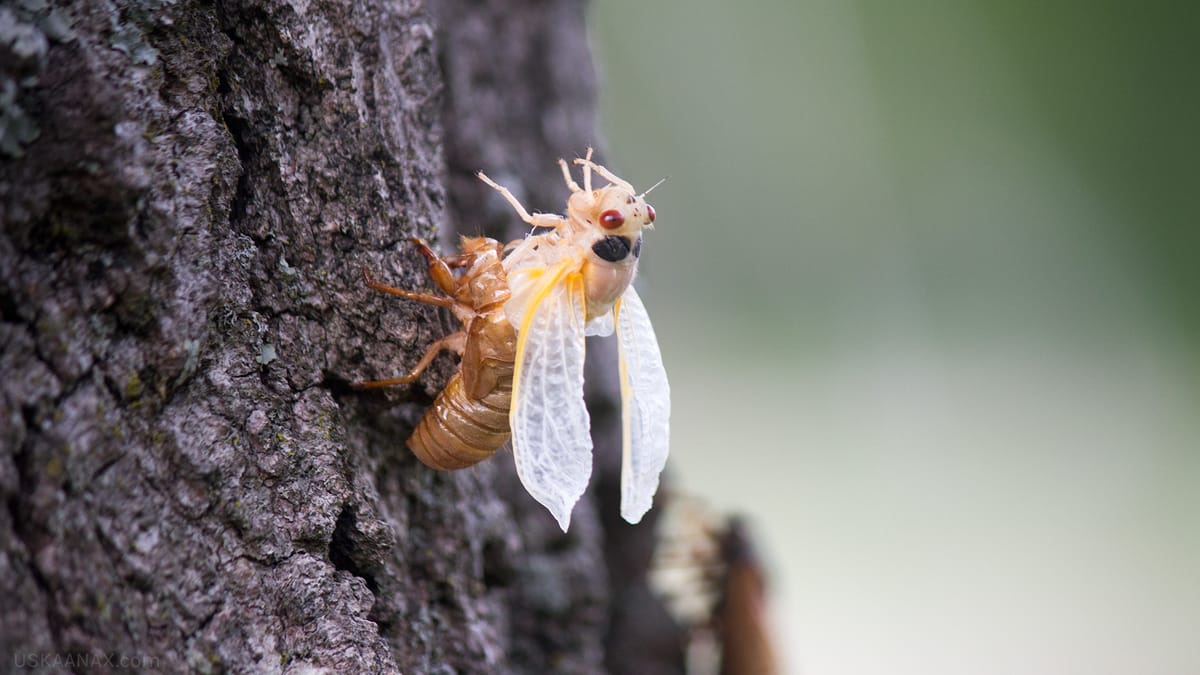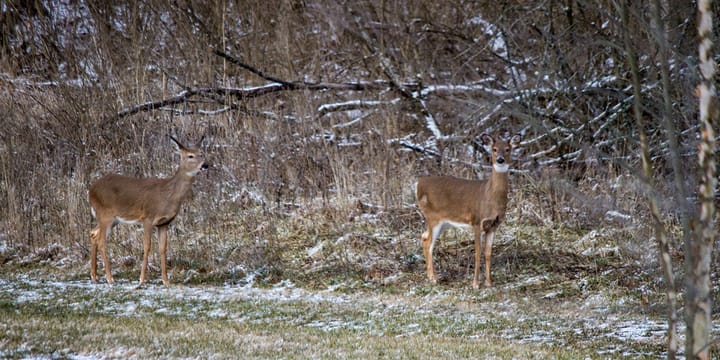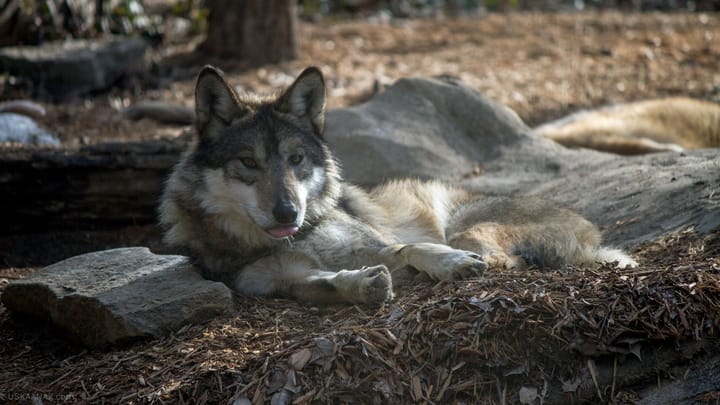Brood X Cicadas 2021 or: How I Learned To Stop Worrying And Love The Swarm
A retrospective three years after Brood X ascended on the midwest and eastern states.

Seeing Brood X in southwest Ohio was one of the most amazing experiences of my life. I would say that I am forever obsessed. I just love them. Being from a place that hardly has any bugs of any size besides mosquitoes (Alaska), I was warned by everyone that I was sure to be in for a terrible time. Indeed, I am intensely fearful of crawly things, but cicadas?? I found them to be like dumb puppies as far as bugs go.
Cicadas are clumsy things, for how they seem unnaturally heavy in the air, and it is an understatement to say that they are not threatening at all. From the tops of trees, the singing rings out the loudest, as that is where they gather in most concentrated numbers. I would watch the odd ground-bound cicada make a valiant effort to fly up to join that cacophonous party. More often than expected, the cicada in question would totally fail, descending past the trunk in slow arc back to the earth in the most anticlimactic fashion. They would sit on long blades of grass, swaying in the breeze like a hammock, waiting for the strength to attempt the journey once again.
They possess in them perhaps the most singularly specific instinct to climb, to go up, to scale any vertical plane before them. It would seem to me that a cicada cannot tell the difference from tree trunks to walls, pipe junctions, light poles, you name it. All they know is that they are so strongly hard-wired to climb, that when you need to put one outside, and you don’t want to touch them because you are squicked out as I am? You can simply hold a remote or spatula vertical in front of their dome faces, and they will climb up and cling to it. Take care that it is not too smooth of plastic for their little legs to find purchase. Because of this easy transport option, I found them to be no trouble at all. Of note is that we lived in a converted school bus with the windows open all day, so we had no shortage of stowaways.
The cicada’s lifecycle is incredible to think about. It reminds me of my home state’s salmon in a way, as they are both living things with such ingrained sense of direction and cyclical life path. To think, the script of their life is written before they hatch, and that plan is all about returning to its birthplace to breed and die. Strange and beautiful and grim in equal turns.

Cicadas are friends, not pests
One time, we found a cicada in a Walmart, crawling on the floor quite a ways from the entry doors. My partner, Nick, scooped it up and took it outside to natural safety. As I waited inside by our cart of items, an employee walked up to me. He had been observing. He said to me, all conspiratorial, “I put them outside, too.”
We were part of a secret club, it almost seemed. Not everyone is a great fan of cicadas. They are commonly mistaken for locusts. Perceived in the same light as a biblical plague, or merely despised for the inconvenience. They are not a major threat to crops.
I read of people spraying pesticides in their yards in advance, which to me is horrific. To think these small critters lived peacefully for nearly two decades, no bother at all for so long, for them to emerge for their final, most dramatic chapter. Their end stage is short lived, vibrant, and full of hope for creating new life. To feel the sun’s rays for the first time and in the same moment be poisoned so thoughtlessly, and ruined for the next generation. You have such a unique life extinguished and an ancient cycle broken. I have no respect for that.
The saddest thing about a place like this– the US midwest, among other regions– is to look into its history. To look at the maps of geographic distribution of all manner of natural things, how animals and plants both have been extirpated where not fully driven to extinction. How much value is really found in the smallest mercy of being relegated to shrinking enclaves where once a species encompassed large swathes of the continent?
People here live in only a sliver of the nature that once existed. They don’t know any different, with generational memories shorter than a couple centuries. Being Indigenous, this is something I struggle to accept for normal. To put it lightly.

Lighter thoughts
Cicadas have the funniest alarmed scream, it rings out like an emergency tone. Sometimes, one would land on me, so I would scream and flail, and it would start screaming, too, and honestly, in such bizarre moments, me screaming and this big bug screaming right back—I felt kinship with these panicked fish-out-of-water. They had spent seventeen years of life in the ground, dark and warm, shielded from the elements. Now in the blazing heat and damp midwestern humidity, it must have been a shock. I, too, was new in this strange place. This was my second summer in Ohio, and it still didn’t feel normal (will it ever?).
When a cicada would get stuck somewhere in our skoolie, we knew, because they’d yell about it. We would be quick to put it outside, seemingly by their own request. They would nimbly scale a proffered spatula like it was a hailed cab. Sometimes we would come back after spending the day elsewhere, and there would be this sad, stuttering, almost low-battery eeee eeEEee eeee of a cicada under the woodstove or something. They really seemed happy to get to go outside. If not to anthropomorphize, they at least showed relief. Truly, I find myself still charmed how they were coincidentally cooperative.
From our extended stays at campgrounds, we found that cicadas were only an oppressive swarm in developed areas. In the woods, they have a profound ability to disappear. I was surprised and impressed by how hard they were to find among dense vegetation, even though you could certainly hear them. Of course, in the actual campground area, and in towns, they would coat surfaces like barnacles. We would find attached, empty husks all over the bus’s tires and wheel wells.
It was all so weirdly magical. I still think about them sometimes, three years later. If my fiancé and I do get to have children, I already think of our future kids seeing descendants of that same brood in 2038. I know even now that it would, and hopefully will, mean the absolute world to me.





Comments ()